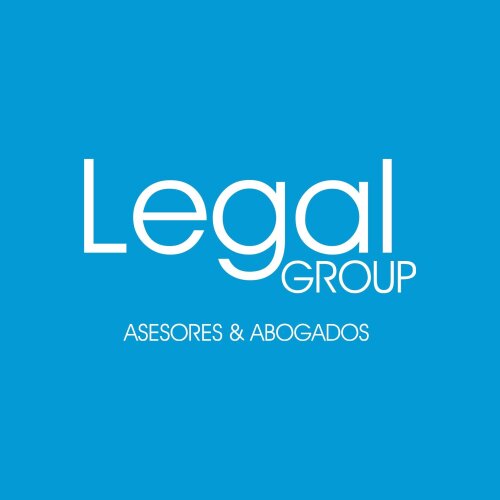Best Transportation Lawyers in Cochabamba
Share your needs with us, get contacted by law firms.
Free. Takes 2 min.
List of the best lawyers in Cochabamba, Bolivia
About Transportation Law in Cochabamba, Bolivia
Cochabamba, situated in the heart of Bolivia, is a bustling city that serves as a central hub for transportation across the country. The city's transportation system is a vital component in its economy, managing both passenger and cargo transport. It includes a variety of means such as public buses, private vehicles, taxis, motorcycles, and increasingly, bicycles. Given its role as a transportation axis, Cochabamba is subject to extensive transportation laws aimed at maintaining the safety, efficiency, and fairness in the transport sector. These laws cover a wide range of topics including traffic regulations, public transportation rules, vehicle registration, and environmental standards associated with transportation.
Why You May Need a Lawyer
There are several situations where individuals or businesses in Cochabamba might require legal assistance in the field of transportation. Common issues include traffic accidents and the complexities of vehicle insurance claims, disputes related to public transportation, regulatory compliance for transport businesses, and the legal formalities involved in buying or selling vehicles. Furthermore, navigating the bureaucratic processes related to vehicle registration or dealing with penalties for traffic violations might also necessitate expert legal guidance to ensure fair treatment and resolution of disputes.
Local Laws Overview
The local transportation laws in Cochabamba are designed to regulate both private and public transportation systems. Key aspects include traffic laws that establish rules of the road, speed limits, and right-of-way regulations. Licensing requirements and vehicle registration are mandatory, as is adherence to vehicle safety and emission standards. Public transport regulation is another critical area, which ensures that services are fair, safe, and reliable. Enforcement is carried out through local municipal codes and national legislation, with specific focus on reducing traffic congestion and improving urban mobility solutions.
Frequently Asked Questions
What should I do if I am involved in a traffic accident?
Immediately ensure your safety and that of others involved. Contact the local police to report the accident and exchange information with the other party. It is advisable to seek legal advice to handle insurance claims and any potential legal proceedings.
Do I need a special license to drive a motorcycle in Cochabamba?
Yes, operating a motorcycle requires a specific motorcycle driver’s license. Make sure to complete the required training and testing to obtain this license legally.
What are the penalties for traffic violations?
Penalties for traffic violations can range from fines to suspension of your driver's license. Serious violations may result in criminal charges and require a legal defense.
How can I register my car in Cochabamba?
Car registration requires an official vehicle inspection, submission of ownership documents, and payment of registration fees at the Servicio General de Identificación Personal (SEGIP).
Is there a legal framework for electric scooters?
Yes, the use of electric scooters is regulated, emphasizing safety features, not exceeding certain speed limits, and restricting their use to designated areas.
What are my rights when using public transportation?
Passengers have the right to safe, timely, and accessible transportation services. Complaints can be lodged with the relevant authorities in case of any service discrepancies.
How do I address a parking violation ticket?
Pay the fine at the designated municipal office or contest it if you believe it was issued unfairly. Consulting a lawyer can help in preparing a legal defense.
What environmental laws impact transportation?
Environmental laws focus on reducing vehicle emissions and promoting sustainable transportation methods to mitigate air pollution.
Are there specific regulations for freight transport businesses?
Yes, freight transport is strictly regulated to ensure safety standards and efficient logistics operations. Businesses must comply with licensing, weight restrictions, and route regulations.
How can I legally start a taxi service?
Obtain the required licenses and permits from the local government, ensure all vehicles meet safety standards, and adhere to operational regulations. Legal advice can help streamline this process.
Additional Resources
Several resources are available for those seeking information or assistance regarding transportation in Cochabamba. These include the Departamento de Transito Cochabamba, the Servicio General de Identificación Personal (SEGIP) for licensing and registration, and local consumer protection agencies. Additionally, consulting transportation law sections of the Bolivian legal code can provide deeper insights.
Next Steps
If you require legal assistance regarding transportation issues, it is recommended to consult with a local attorney specializing in transportation law. Begin by gathering all relevant documents and evidence related to your case. Consider setting up an initial consultation to discuss your situation and explore your legal options. Engaging a qualified lawyer ensures that your rights are protected and any legal matters are addressed professionally.
Lawzana helps you find the best lawyers and law firms in Cochabamba through a curated and pre-screened list of qualified legal professionals. Our platform offers rankings and detailed profiles of attorneys and law firms, allowing you to compare based on practice areas, including Transportation, experience, and client feedback.
Each profile includes a description of the firm's areas of practice, client reviews, team members and partners, year of establishment, spoken languages, office locations, contact information, social media presence, and any published articles or resources. Most firms on our platform speak English and are experienced in both local and international legal matters.
Get a quote from top-rated law firms in Cochabamba, Bolivia — quickly, securely, and without unnecessary hassle.
Disclaimer:
The information provided on this page is for general informational purposes only and does not constitute legal advice. While we strive to ensure the accuracy and relevance of the content, legal information may change over time, and interpretations of the law can vary. You should always consult with a qualified legal professional for advice specific to your situation.
We disclaim all liability for actions taken or not taken based on the content of this page. If you believe any information is incorrect or outdated, please contact us, and we will review and update it where appropriate.








